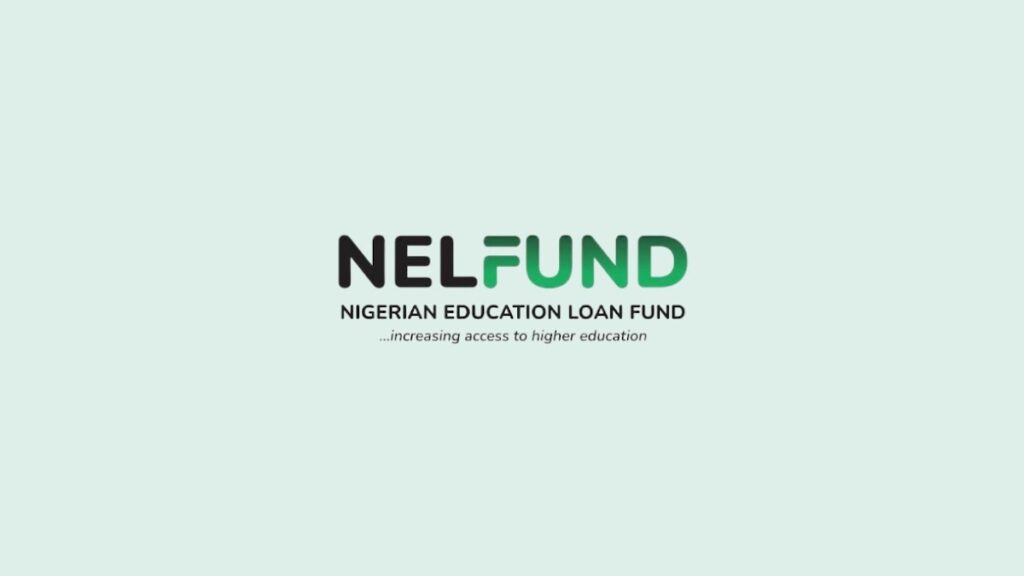In an impassioned appeal today at NELFUND’s inaugural hybrid media briefing in Abuja, the Managing Director, Mr. Akintunde Sawyerr, demanded that tertiary institutions promptly refund students who were forced to pay tuition fees out-of-pocket, only to have the Nigerian Education Loan Fund (NELFUND) later remit the same amounts to their schools. He reminded schools of their legal, ethical, and moral responsibilities.
Table of Contents

The Background: A Rapid Response to Rising Dropout Rates
NELFUND was backed by presidential urgency to counteract widespread financial barriers pushing students out of universities and polytechnics. After President Tinubu signed the Student Loan Act into law on April 3, 2024, the programme was fast-tracked and officially launched on May 24, 2024—midway through academic calendars. The urgency, though necessary, inadvertently led to overlaps between student fee payment deadlines and NELFUND’s disbursement schedule.
“The president wanted us to quickly start the scheme because there was a recognition that people were dropping out, even those in 300 and 400 level. We had to move, even if it meant starting mid-session,” Sawyerr acknowledged.
This well-intended haste resulted in situations where students, often under immense financial strain, had no choice but to pay tuition out of pocket—sometimes via loans from relatives or banks—only to later discover that NELFUND had paid the same fees to their institutions. This led to frustration and calls for restitution.
The Call for Refund: What NELFUND Expects
During the press event, Mr. Sawyerr issued a sharp warning: institutions that “double charge” students are jeopardising the integrity of the loan scheme and undermining public confidence.
“In such cases, these institutions are morally and professionally obligated to refund the students. Some schools have complied, but others have not, leaving many students in distress,” he emphasized.
To resolve the issue, NELFUND laid out two clear paths to restitution:
- Direct School Refunds: Institutions should repay students themselves.
- Alternative Via NELFUND: Schools that fail to refund students should return the duplicated funds to NELFUND, which will, in turn, refund students directly
Regulatory Oversight: Anti-Corruption Agencies on High Alert
The issue has escalated beyond student grievances into the realm of national integrity. NELFUND’s leadership confirmed that regulatory bodies—the Economic and Financial Crimes Commission (EFCC) and the Independent Corrupt Practices and Other Related Offences Commission (ICPC)—have taken note following petitions and media exposés.
“We have been questioned as an organization. The institutions too have been questioned. We are not shielding anyone,” Mr. Sawyerr reassured
He made it clear that no institution is above reproach. NELFUND is fully prepared to cooperate with investigations, insisting that accountability is non-negotiable.
Safeguarding the Programme: Reputational and Financial Implications
Schools dragging their feet risk undermining the integrity of a programme meant to revolutionise Nigerian higher education. Sawyerr warned that if the narrative around refunds of “double-charged” students becomes mired in sensationalism or misinformation, it risks scaring off private investors, whose participation is central to the scheme’s future funding model
“This is not just about education financing — this is a national transformation project. We cannot allow false narratives to derail a scheme that has already given hope to thousands of young Nigerians,” he stated.
NELFUND also stressed its commitment to transparency. A public dashboard—updated daily—monitors disbursement status, beneficiary institutions, and remaining balances. According to Sawyerr, this transparency is critical in reinforcing trust among the public and private sectors.
Expanding the Scope: TVET and Skills Development
The agency’s mandate isn’t limited to tuition financing. At the briefing, Mr. Muspaha Iyal, Executive Director of Operations, elaborated on NELFUND’s partnership with the Federal Ministry of Education for the expanded Technical and Vocational Education and Training (TVET) initiative.
Nearly one million applications have been received in this first rollout. Initially, support is grant-based, but plans are already underway to transition to a longer-term, loan-based model to guarantee ongoing viability and affordability for graduates entering technical careers.

The Bigger Picture: Student Eligibility, Repayment Terms, and Impact
NELFUND remains committed to ensuring that tuition relief reaches its intended demographic. Key eligibility criteria include:
- Nigerian citizenship
- Valid admission (undergraduate, first degree, or equivalent)
- National Identification Number (NIN) and Bank Verification Number (BVN)
- High school leaving first degree sought, not postgraduate
To date:
- Over 675,000 applications registered
- Nearly 396,000 students funded
- N73.2 billion disbursed to date
Repayments are structured around post-graduation employment or NYSC placement:
- No interest is applied.
- Post-service employment triggers a 10% automatic monthly deduction via employers
The policy ensures fairness: if graduates remain unemployed post-service, repayment obligations are suspended until they are gainfully employed.
Call to Action: What This Means for Stakeholders
The message is clear: institutions must act swiftly to refund students who paid tuition out of pocket despite disbursement by NELFUND. The clock is ticking, and delayed action could invite regulatory scrutiny, tarnish institutional reputation, and threaten the loan scheme’s future sustainability.
As NELFUND continues expanding into vocational education—including both grant- and loan-driven components—it will be critical for schools to align their internal processes with disbursement schedules, maintaining consistency and trust.
For students, as well as their parents, today’s announcement is a beacon of accountability. If your institution hasn’t reimbursed you for duplicated tuition, you now have a clear path:
- Formally request a refund from the bursary office.
- If refused, escalate to NELFUND for direct reimbursement.

Conclusion
The NELFUND student loan and TVET support initiatives mark a historic shift in Nigeria’s educational financing. However, they rely heavily on stakeholder coordination—from government, private partners, and especially institutions. By ensuring fairness in tuition disbursements and maintaining transparent channels of communication, NELFUND can both preserve its hard-won credibility and continue expanding access to education for thousands more.
The programme’s success hinges on mutual accountability: institutions fulfilling ethical duties, government entities safeguarding transparency, and students confidently engaging with the system. If all parties uphold their responsibilities, NELFUND could truly reshape the educational landscape.
Join Our Social Media Channels:
WhatsApp: NaijaEyes
Facebook: NaijaEyes
Twitter: NaijaEyes
Instagram: NaijaEyes
TikTok: NaijaEyes
READ THE LATEST EDUCATION NEWS














![Tragic Incident: Fans of Seyi Vibez Die in Fatal Accident After Electrifying Lagos Concert [VIDEO] Seyi Vibez](https://naijaeyesblog.com/wp-content/uploads/2025/08/Seyi-Vibez-180x135.avif)
























